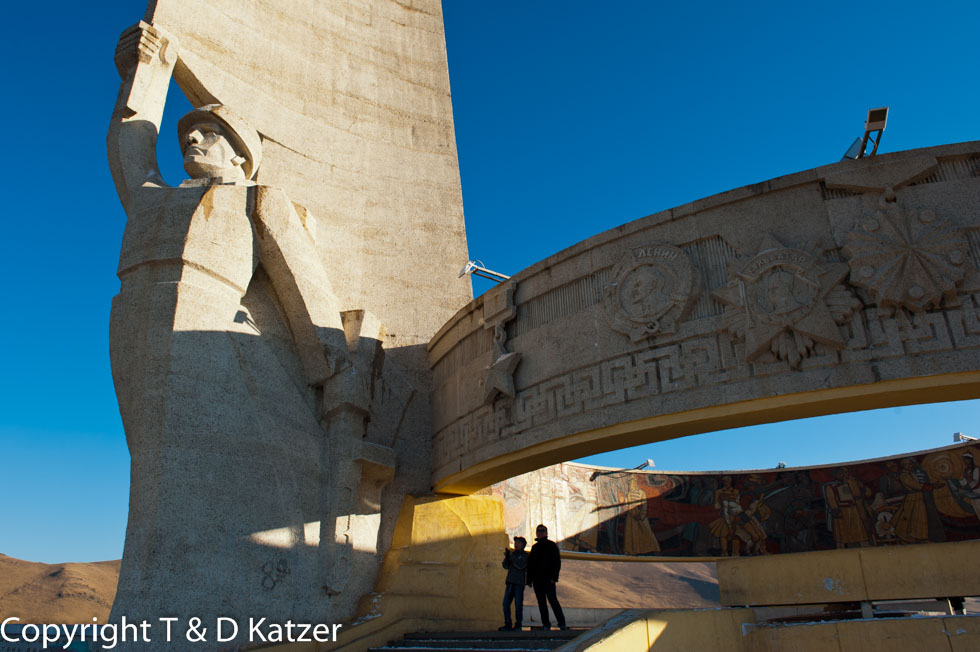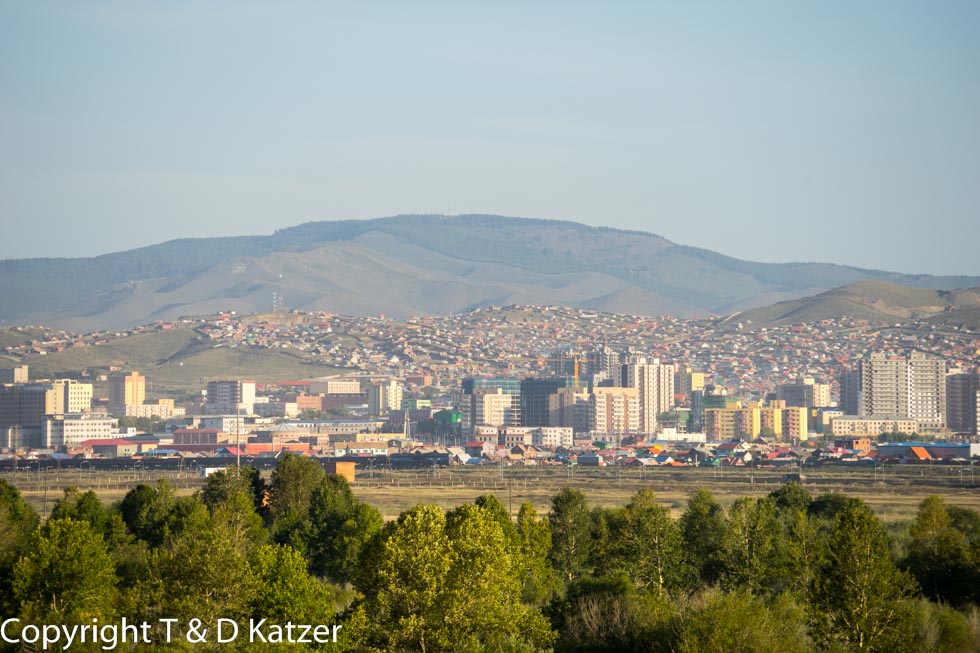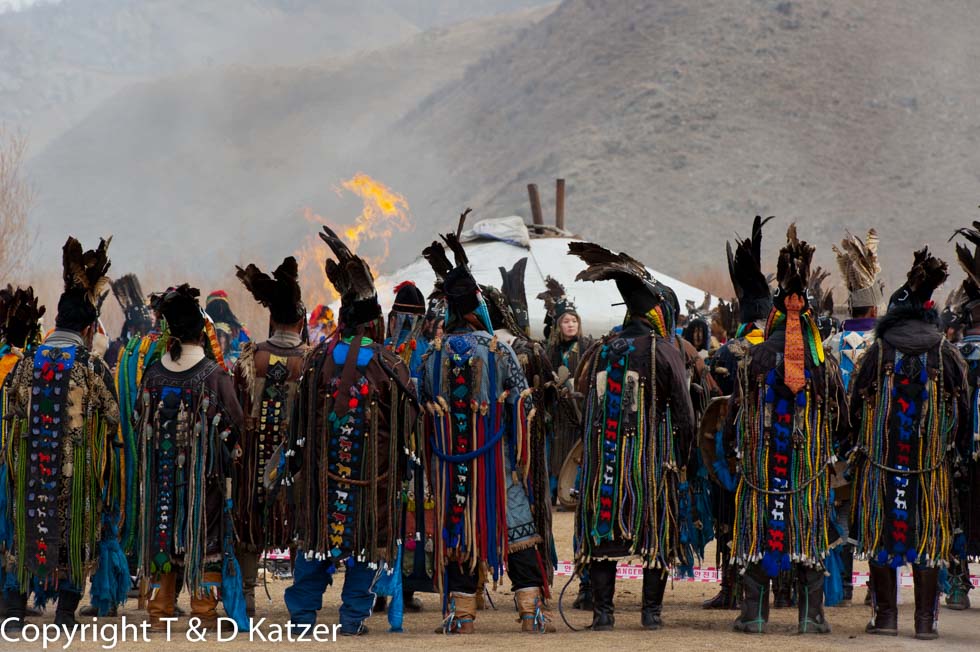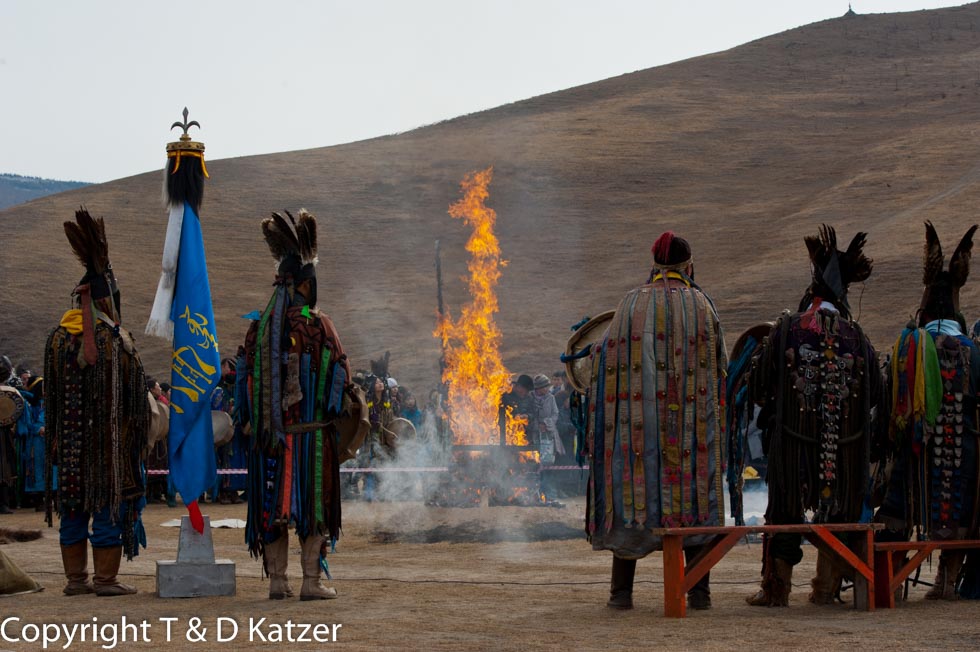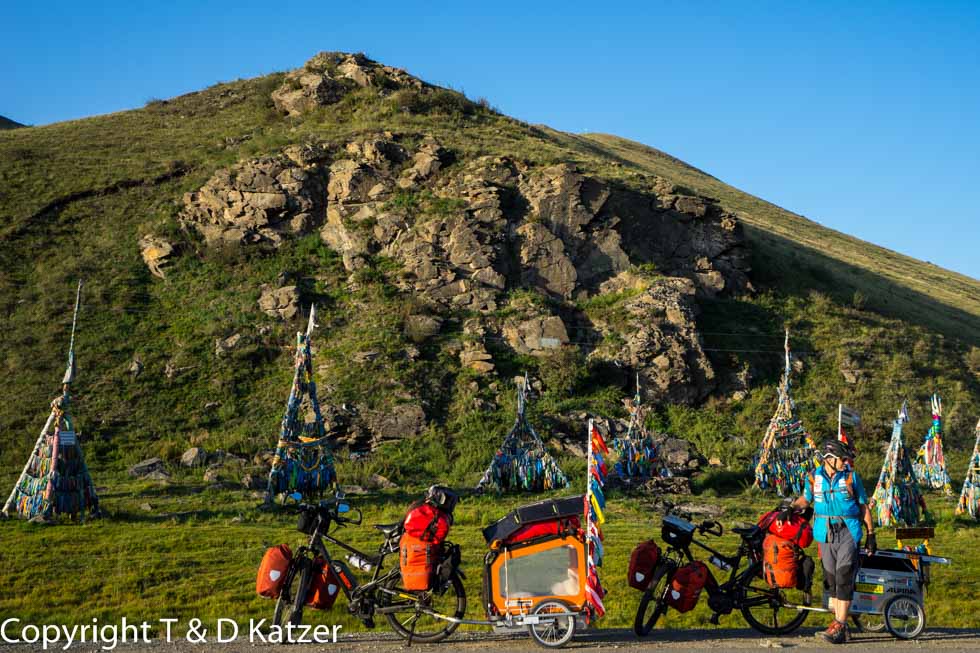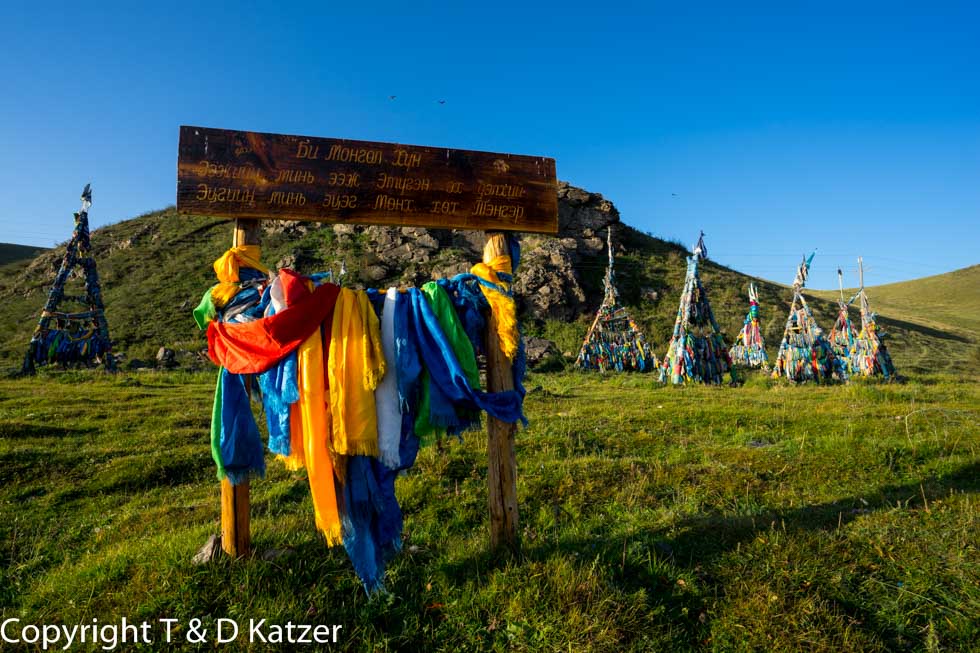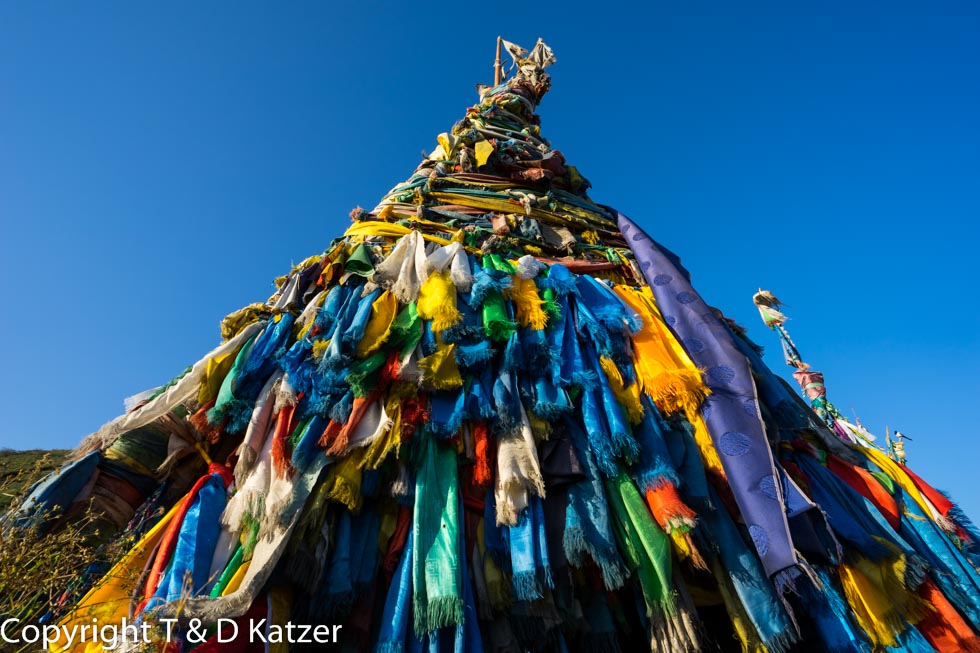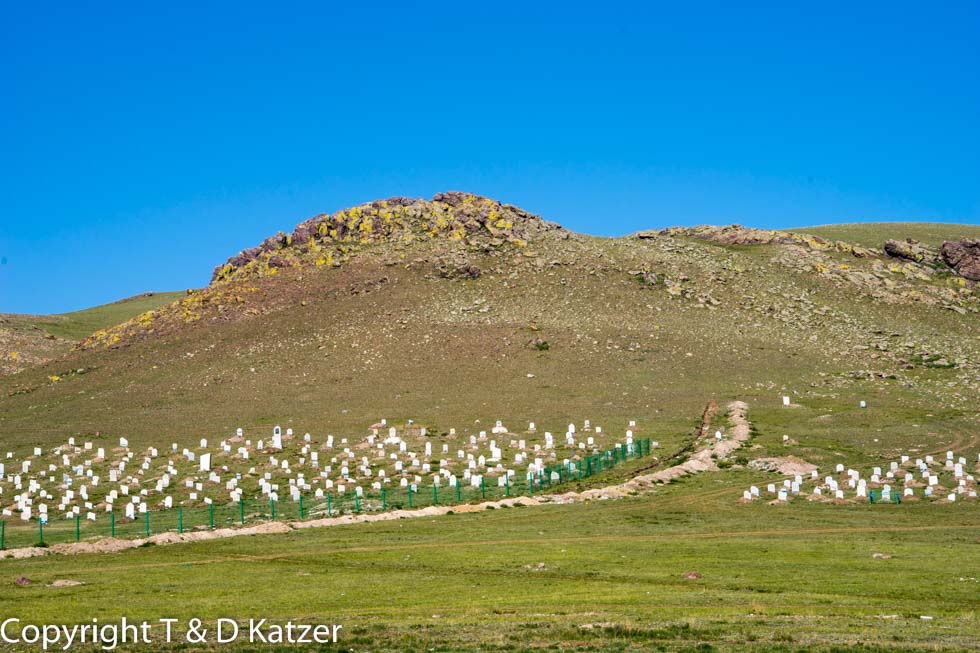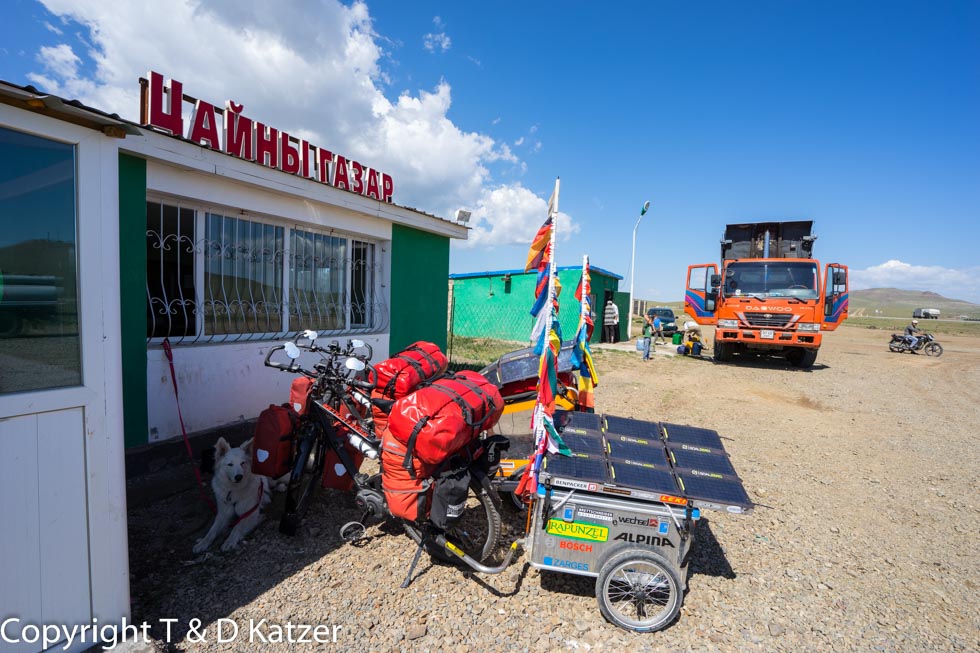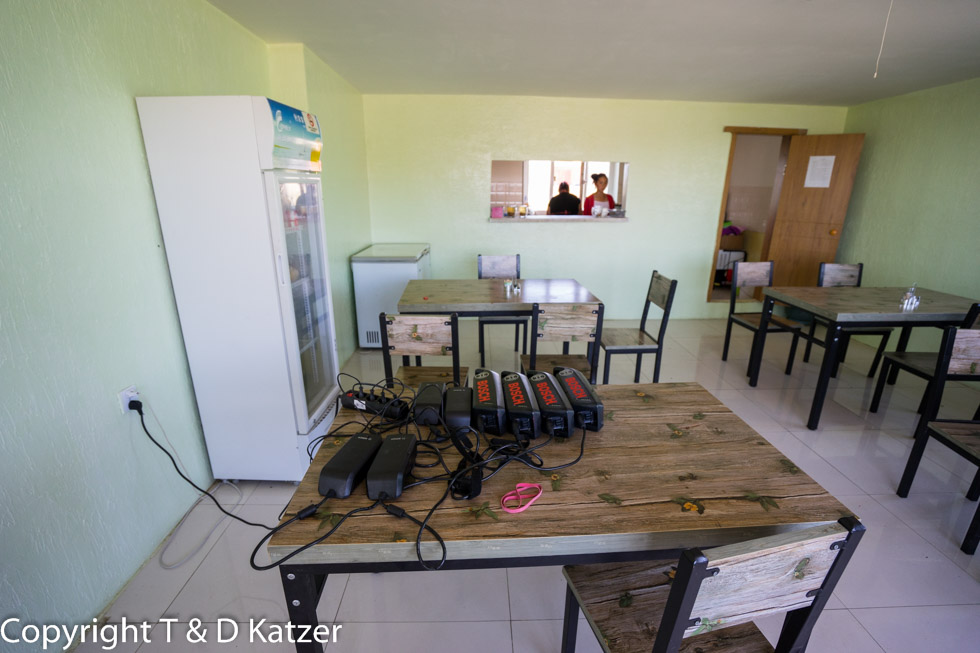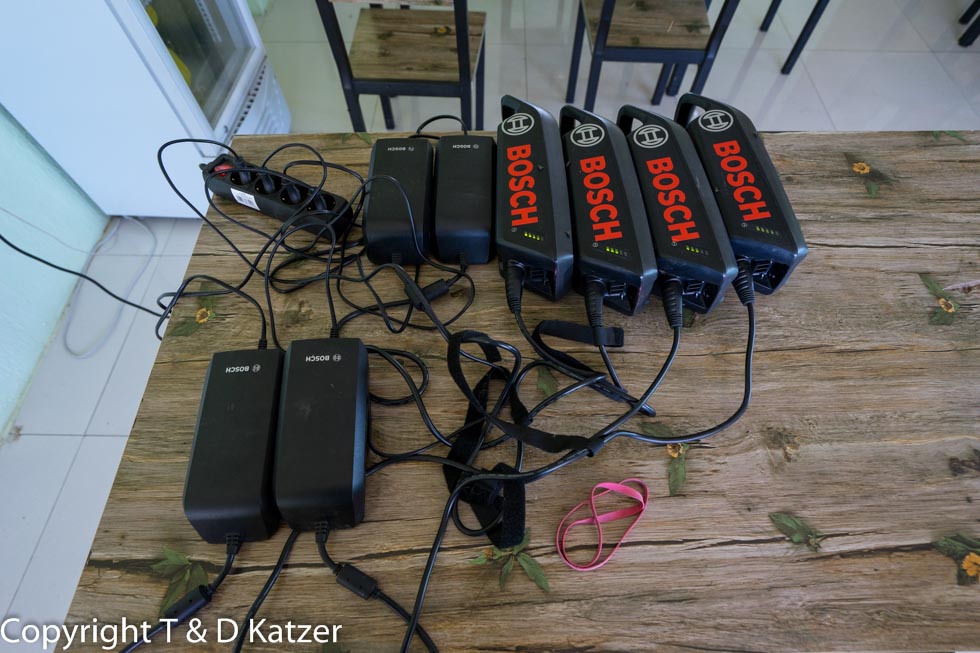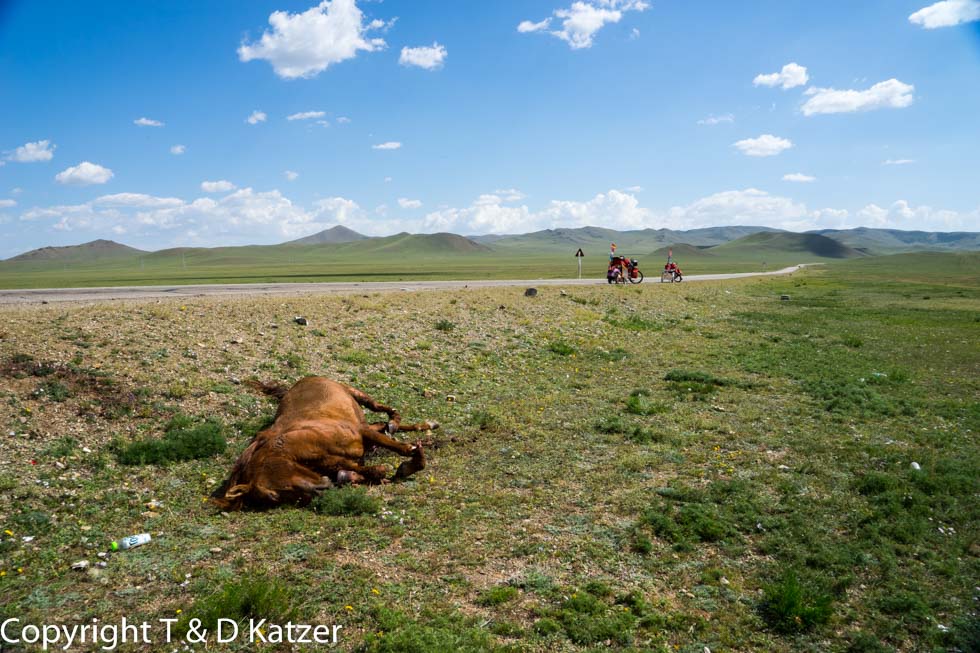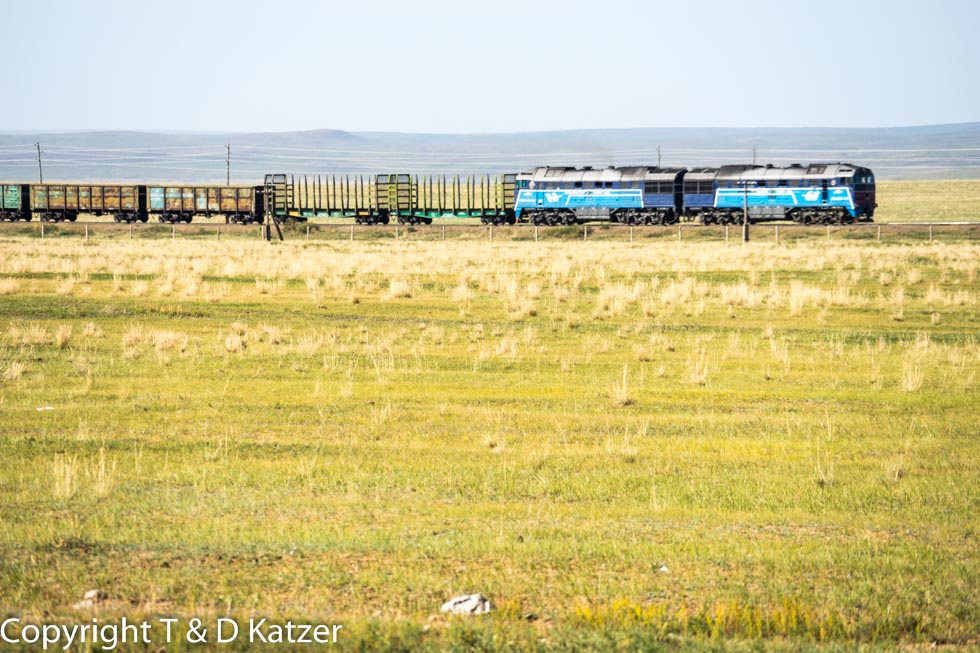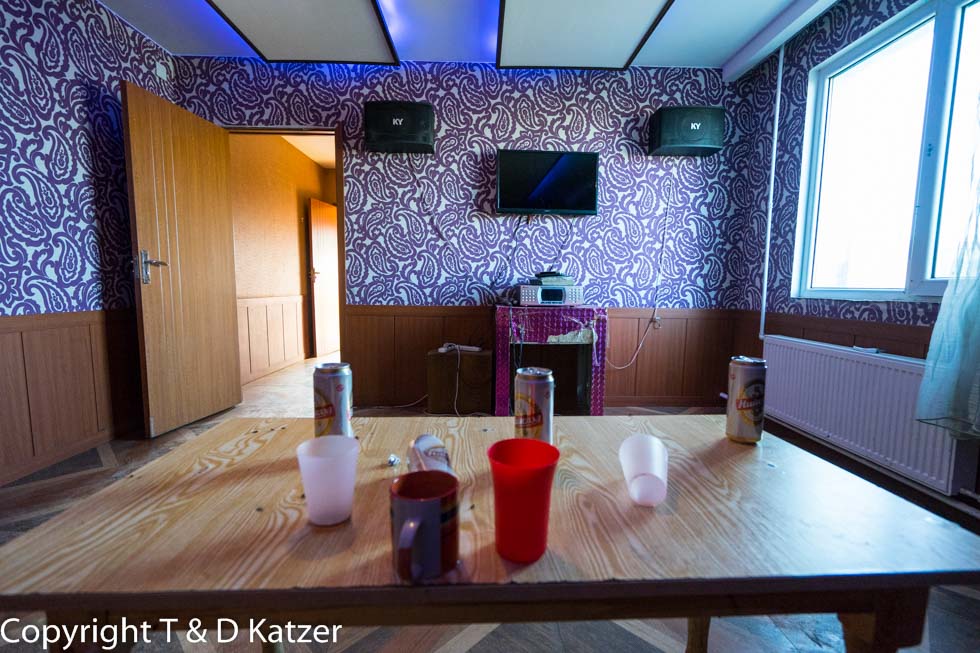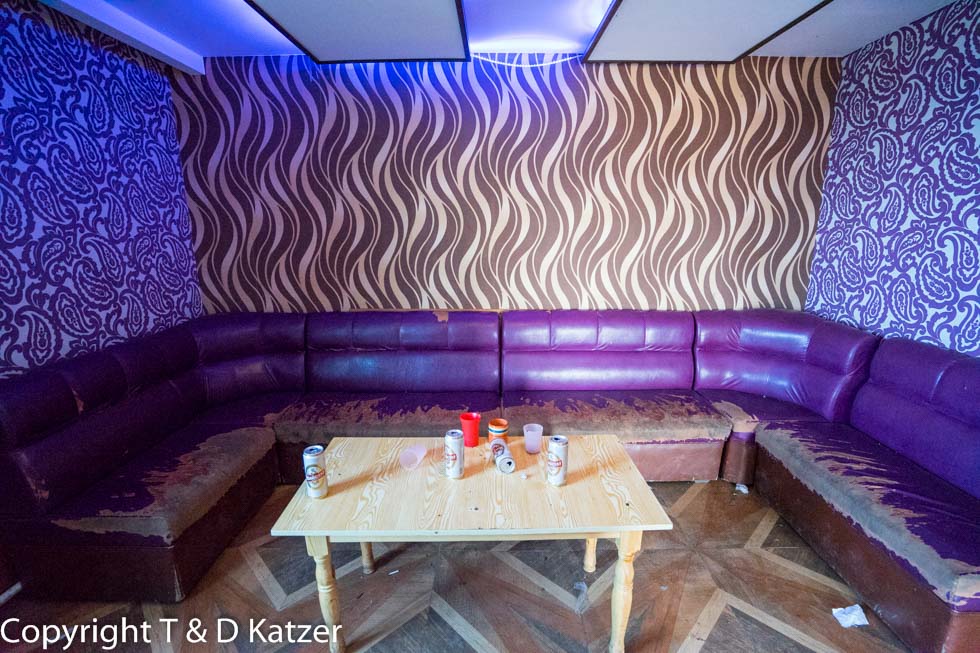
Off to the Gobi Desert
N 47°21'23.9'' E 107°29'59.6''
Date:
27.08.2015
Day: 60
Country:
Mongolia
Location:
Bagakhhangai
Latitude N:
47°21’23.9”
Longitude E:
107°29’59.6”
Daily kilometers:
95
Total kilometers:
8,658
As the crow flies:
77 km
Aver. Sib.
21.6 km/h
Maximum speed
60 km/h
Travel time hrs
4:22
Soil condition:
Partly poor asphalt
Maximum height:
1.700 m
Total altitude meters
3.417 m
Altitude meters for the day
417 m
Sunrise:
07:00 a.m.
Sunset:
20:43
Temperature day max:
34
Departure:
07:30
Arrival time:
17:00
(Photos of the diary entry can be found at the end of the text).
After 2 ½ weeks in Ulan Bator, the journey finally continues. Due to the flood of errands we had to deal with in this city, I am far from finished with my notes, but we don’t want to stay another day. “You can write on the way if we find a nice spot,” says Tanja. We get up at 5:00 a.m. to avoid being eaten up by the terrible rush-hour traffic. It’s still pitch dark outside and even a little chilly. Because we are staying on the roof of Ganas Guesthouse, we are forced to carry all our equipment down two floors. We also let the bikes, which we tied to a couple of water pipes next to our yurt for fear of theft, slowly lurch down the stairs. As a result, we are only ready to set off at 7:30 am. “What a bummer,” I curse, standing at the red light and pointing at the snorting queue of traffic winding in front of us. “We’ll manage!” Tanja calls out confidently as always. In turbo mode, we squeeze between the stinking heaps of metal and pedal along at a speed of around 27 km/h. “Now!” I shout against the coughing of the many vehicles as another traffic light turns green so that we start at the same time and form a homogeneous unit. Most drivers treat us very well. They greet us with loud honking horns or wave encouragingly and admiringly from their windows. “We have to get to the mountains. There’s a less busy road leading out of the Moloch,” I tell Tanja as we wait in front of another set of traffic lights. “And how do you know that?” she wonders. “Kahdbaatar explained the route to me in detail at our last meeting. We can’t get lost at all. We just have to follow the side of the mountain. Always along the Tuul River in an easterly direction. Then we come to a crossroads. From there we head south,” I explain as we continue.
When we reach the mountain flank, we find ourselves in a residential area. Only a few cars actually drive here. To our right we see the huge Zaisan war memorial built by the Russians. It towers over the city and commemorates the friendship between Russia and Mongolia, the Soviet support for Mongolia’s independence in 1921, the defeat of the Japanese Kwantung Army at the Khalcha River on the Mongolian border in 1939, the victory over Nazi Germany and Russian space travel. “Look, that’s the place where we attended the shaman festival during our last stay in Mongolia,” I say and remember when about 100 shamans and shamanesses met on October 14th, stood around a huge bonfire and all beat their drums together for the whole day. The rhythm got under my skin in such a way that I still think I can feel the vibrations. Roelof’s wife Anu, who was a shaman-to-be herself, had told us that during this ritual the shamans bid farewell to autumn and welcome winter. Lost in thought, we walk around the square, then leave the capital of Ulan Bator behind us without much traffic. “That went fantastically well. You did a great job navigating us out of there!” Tanja exults.
We are now back on the busy arterial road, which looks more like a field. Traffic has now increased considerably. Trucks cough past us, covering us with dust and dirt. When we leave the small town of Nalaikh on the left after more than 20 km, the traffic suddenly calms down. “From here, it’s always straight towards China,” I say. There are still many mountains. The first battery is empty after just 20 km. The stop and go in city traffic, the headwind and the uphill riding quickly wore him out. We ask ourselves where we can recharge? The nearest town is indicated on the map at 60 km. A Mongolian speaks of 100 km. At over 30 °C in the shade, it is very warm. After 40 km we are tired. The long break in U.B. takes its toll. “Rooaarrr”, a fat four-wheel drive jeep hammers past us from time to time. Every few kilometers, the horrible stench of decay announces a dead cow or a dead horse. The victims of speeding lie on the side of the road with burst stomachs, broken legs or necks, staring at us with empty eye sockets. We stop at a cemetery and look out over a mountainside where the Mongols bury their dead. We quench our constant thirst by pulling on the tubes of our hydration packs. Then we glide down the hill on our swivel horses. From here it is always slightly downhill. To our right, the Transmongolian Eisenban puffs and rattles through the increasingly flat land. “Thhhüüüüüiiiiiiiiit! Thhhüüüüüüiiiiiiiiit! Thhhüüüüüüiiiiiiiiiiit!”, sounds the loud horn of the tractor. The train driver waves to us. We give it a thumbs up. He also holds his hand out of the window with his thumb up and we think we can see a smile on his face.
Like a mirage, after more than 60 km a small roadside restaurant finally appears where we can charge our batteries. Relieved, we settle down in the sparse room and eat a Mongolian noodle dish. To Ajaci’s delight, we catch the fatty, rancid-tasting meat. After the delicious Veganesse in U.B., the meal is a real challenge for my taste buds. Three hours later, our batteries are full. We say goodbye to the landlady, lift our exhausted bodies into the saddle and let the cranks spin again. If we hadn’t been warned again and again, we would have pitched our tent by now at the latest. However, we try to find accommodation where we can charge our empty batteries overnight.
After 95 kilometers we reach an abandoned-looking house where we can spend the night. The room costs 35,000 tugrik. (15,58 €) Our bikes have a place next to the karaoke bar on the first floor. As I secure her to the banister with the steel cable, a moped rattles up. As he parks the rusty vehicle, the old Mongol almost falls out of the saddle. “Oh dear, that man is really drunk. I hope he doesn’t come in here,” says Tanja as he staggers in the door. “Sajn bajna uu” (Good day), he greets us slurring his words. “Sajn, sajn bajna uu”, (Thank you, good day) we reply. “Do you have a cigarette?” he demands. Unfortunately, no, we are non-smokers,” I try to explain in a friendly manner. Then he sees our bikes and says something unintelligible. After a few minutes, the situation starts to become difficult. “Do you like Mongolia?” he wants to know. Tanja speaks to him with the tongues of an angel and tries to accompany him outside. As soon as he has stumbled over the landing, he turns around again and stands in front of us with the same questions. It takes a while before we can resume our work. “I hope they don’t come in here at night and steal our bikes,” says Tanja. “They’ll definitely come in here. Look, the door there leads to the karaoke bar. I’m sure it’s a real party there every night,” I reply as the dog trailer suddenly falls over and, because the heavy bag is still loaded on its roof rack, it crashes onto the drawbar with full force. “Oh no!” I shout, jumping to the drawbar to examine it. “This shouldn’t happen to us under any circumstances,” I scold the aluminum pipe, checking for breaks or cracks. “Has it been damaged?” asks Tanja nervously, because she knows what a broken drawbar means. “Yes, look at that. It’s completely bent,” I say, shaking my head. “Can’t it be straightened?” “Aluminum? No, absolutely not. If you bend aluminum, it breaks quite easily,” I explain. “And now what? What do we do now?” “Drive on like this. We can only hope that the pipe does not bend any further. It must last until China. We have to have a new drawbar sent to us there. As I continue to stow the bikes and trailer, I notice that the mudguard mount scrapes against the luggage rack when the rear suspension is compressed. Tired from the exhausting day, sweating because of the heat and in a bad mood because of the lapse with the drawbar, I sit in front of the bike and think about how I can solve the problem. Then I had the simple idea of turning the fastening screws by 180 degrees. Half an hour later, this damage is also repaired.
With slumped shoulders, I carry some of my equipment up to the second floor. “Which room do you want?” the young employee asks me, showing me some alternatives. As the sun beats through the window on the courtyard side and it’s quite hot in the room, I decide to stay on the street side. “Sajn”, (Good) she says and leaves. We put everything in our dirty room. “Dötschin mjanga Tugrik”, 40,000 Tugrik (17.81 €) is what the young woman demands immediately. “Dötschin mjanga Tugrik?” I ask in astonishment because she only asked for 35,000 Tugrik a few minutes ago. After some back and forth we understand that there are three beds in the room facing the street and only two in the other. Although we are the only guests, she stubbornly holds on to the price, which is why we now carry our equipment into the sweat room opposite. Fresh bed linen, towels and toilet paper remain a pipe dream. “Different cultures have different ideas about hygiene,” I say. We unpack our own stuff and try not to start a fight. When I go into the run-down bathroom, the tap suddenly chokes and, apart from a few drops, only warm air hisses out of the rusty thing. “Now I’ve had enough!” I grumble in a bad mood and am about to storm downstairs. “Let me do it,” says Tanja… “And does the water work?” she calls out ten minutes later from the backyard, which is more like a rubble dump. “What are you doing down there?” I want to know. “They have to haul the water in canisters from somewhere. Then they fill it into the little blue barrel there in the wooden hut and pump it up with a petrol engine,” she explains. “I don’t think it was intentional. They just ran out of water.” “Hm, okay,” I reply, turning on the tap as the yellowish liquid spits out irregularly.
After I have typed my short notes into the laptop and signed the pictures, we go downstairs. There is warm beer from the can. I also order the only dish. Soup with noodles and rancid meat. I stop eating after just a few spoonfuls. “What’s going on?” asks Tanja, who has predictably decided to skip dinner. “Totally oversalted and the meat is full of gristle, fat and tastes as if it has been in the sun for too long.
Suddenly the thin walls tremble. Extremely loud, weird sounds maltreat the house. “What’s that?” asks Tanja, startled. “Karaoke,” I reply with a grin, although I would prefer to flee.
On the way to our room, a young Mongolian woman is helping one of the singers hand him over. He vomits right in front of the establishment’s door. “Apparently his own singing has made him sick,” I joke as I walk past the two of them. Back in our overheated den, I lie on the sleeping mat and try to sleep. Not a chance. The full moon shines through the dirty windows of the room as if it were daytime and the horrible screaming and bawling of the karaoke fetishists makes the walls tremble incessantly. According to the motto the louder the better, the noise increases as the hour progresses. It almost seems to tear the speakers apart. It shrills and squeaks so much that my ears hurt. I look over at Tanja and Ajaci who are both lying on their backs sleeping like bugs. Apparently the strain of the day has helped them to escape from this terror of nerves into the world of dreams while I lie there and have to control myself not to become a criminal…
The live coverage is supported by the companies Gesat GmbH: www.gesat.com and roda computer GmbH www.roda-computer.com The satellite telephone Explorer 300 from Gesat and the rugged notebook Pegasus RP9 from Roda are the pillars of the transmission.
